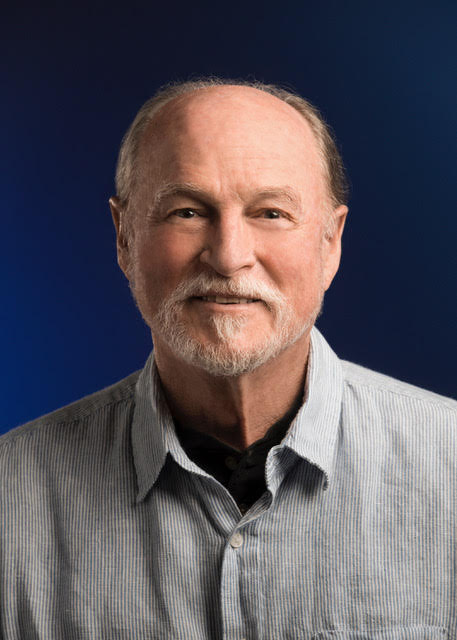Aisle Seat Review and our readers are enjoying a new series of question-and-answer interviews with prominent Bay Area theater people.
Our goal is not to subject you the reader to extended portentous sermons of the guest’s views on Russian translations of lesser-known Mamet flash drama (is there such a thing?)
Too often the people who guide and make theater in the Bay Area are behind the scenes — fast-moving denizens of the curtain lines who mumble into microphones while invariably (always excepting Carl Jordan’s beret collection…) dressed head-to-toe in black. These interviews allow you, the reader, to get to know these amazingly talented people a bit more, as…people.
Offering some personal and professional insights: with a heavy dash of humor, this is Aisle Seat Review’s Not So Random Question Time.
***

Robert Kelley is founder and Artistic Director of TheatreWorks Silicon Valley, one of the oldest and most esteemed theater companies in the Bay Area. Both Kelley and his company have been honored multiple times by Theatre Bay Area (TBA) and the San Francisco Bay Area Theatre Critics Circle (SFBATCC). Kelley kindly took time to respond to ASR’s not-so-random and not-too-serious questionnaire…
ASR: How did you get started in theater?
RK: At age 8 I walked past our local children’s theatre and saw a sign that read “Auditions.” In I went, and got cast! My talent: being loud.
ASR: What was the first play you performed in or directed for a paying audience?
RK: Goldilocks and the Three Bears—a fourteen-year-old played my mother and told the cautionary tale to me as it was acted out onstage. I may have had a few lines, but I can’t remember them at the moment. Maybe “Yes, Mama.”
ASR: How many theater companies have you been involved with?
RK: Less than ten: TheatreWorks, Cal Shakes, Cincinnati Playhouse in the Park, St. Louis Rep, and a few smaller companies.
ASR: When was your present company formed?
RK: 1970. I’m the founder.
ASR: Did you anticipate it would become as successful as it has?
RK: No. Our long-range plan was to produce a second production. Then a third. We’re at 450 shows today.
ASR: Does your company have a special focus, i.e., genre/historical period, contemporary, experimental, emerging playwrights, etc?
RK: Plays and musicals, world premieres (70 to date), recent on- and off-Broadway, re-imagined classics.
ASR: Who has had the largest impact on your professional development in the theater?
RK: Stephen Sondheim.
ASR: It will likely be several months until theaters reopen. How is your company coping with the shutdown?
RK: We’ve cancelled three shows (of an eight show season), and restructured the 2020-21 season to seven shows, beginning in October, with most of the smaller shows going first. We’ve moved our 19th New Works Festival six months, from August to January.
We’ve begun an active program offering streams of previously produced shows, and interviews with staff and artists from around the country. Soon to come: readings of new works in development. So far, we’ve been able to keep our full-time employees.
ASR: How has the crisis affected your planning for coming seasons?
RK: We’ve moved our World Premiere drama Nan and the Lower Body from March to July, where it will become the first show of our 2021-22 season. For this coming December, we’ve added an inspiring and funny hope-in-the-face-of-despair holiday production of It’s a Wonderful Life: a Live Radio Play.
ASR: How do you envision the future for your company? For the theater community overall?
RK: For everyone: very tight budgets, smaller shows, fewer actors and designers from out of the area, expanded online presence, ultimately smaller staffs. I think we are all worried that some companies may not make it through this intact, as was the case in the recession of 2008.
ASR: Almost forgotten with the pandemic is the crisis caused in the performing arts world by the passage of Assembly Bill 5, requiring most workers to be paid the California minimum wage. There are multiple efforts in Sacramento to get performing artists exempted from this. Has AB5 affected your theater company’s plans?
RK: We have been paying at least minimum wage to everyone for some time. We believe we are in compliance with all aspects of AB5.
(most over-performed)…Titus Andronicus. Even one production is too many.
ASR: What are some of your favorite dramas? Musicals? Comedies?
RK: Dramas: M Butterfly, The Elephant Man, Arcadia, and Romeo and Juliet. Musicals: Ragtime, Sunday in the Park with George, Into the Woods, Once on This Island, Pacific Overtures. Comedies: The 39 Steps, As You Like It, and Once in a Lifetime.
ASR: Name three all-time favorites that your company has produced.
RK: Emma, Daddy Long Legs, and Pride and Prejudice.
ASR: Shakespeare’s most over-performed play?
RK: Titus Andronicus. Even one production is too many.
ASR: If you had to do a whole season performing technical work—sets, lights, projections, sound, props, costumes—which would it be and why?
RK: Props. I love finding the perfect period piece that defines an era—and I wish I knew how to make a period newspaper.
ASR: As hard as it may be to pick just one, can you name a Bay Area actor who you think does amazing work?
RK: Francis Jue. He’s from here, now in New York, but frequently returns here.
ASR: How do you warm up before a performance? How do you relax after?
RK: I pace.
ASR: If someone asked to be your apprentice and learn all that you know, what three things would you tell them are essential?
RK: Patience, preparation, laughter, listening. Was that more than three? Did I mention patience?
ASR: What theater-related friendship means the most to you? Why?
RK: I met Ev Shiro, my life partner of 38 years, at TheatreWorks and have loved her ever since. We’re also friends.
ASR: What is the funniest screw-up you’ve seen on stage in a live performance?
RK: We had a frequently confused actor forget to wear his pants for an entrance in Gypsy.
ASR: The most excruciating screw-up?
RK: Do you have an hour?
ASR: What’s the weirdest thing you’ve seen a guest do in a theater?
RK: A very young boy attending our holiday musical Oliver! re-set in Victorian London in December, very loudly: “Mommy, why’s it snowing inside?
ASR: What are your interests outside of theater?
RK: Collecting beach glass, mushroom hunting.
ASR: You discover a beautiful island on which you may build your own society. You make the rules. What are the first three rules you’d put into place?
RK: Patience, laughter, listening.
ASR: What would be the worst “buy one get one free” sale of all time?
RK: Titus Andronicus.
ASR: If you were arrested with no explanation, your friends and family might assume you had done what?
RK: Forgot to stage a scene.
ASR: What three songs are Included on the soundtrack to your life?
RK: “The Water is Wide” by James Taylor; “Both Sides Now” by Joni Mitchell; “Fields of Gold” by Eva Cassidy.
ASR: Theater people often pride themselves on “taking risks”—have you any interest in true risk taking, such as rock climbing, shark diving, bungee jumping, skydiving?
RK: Reading the paper the day after opening.
ASR: Favorite quote from a movie or stage play?
RK: “Children will listen.”
-30-
 ASR Executive Editor Barry Willis is a member of the American Theatre Critics Association and president of the SF Bay Area Theatre Critics Circle. Contact: barry.m.willis@gmail.com.
ASR Executive Editor Barry Willis is a member of the American Theatre Critics Association and president of the SF Bay Area Theatre Critics Circle. Contact: barry.m.willis@gmail.com.
